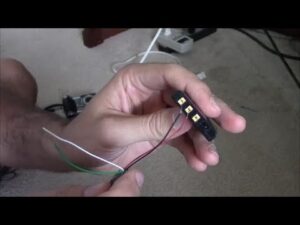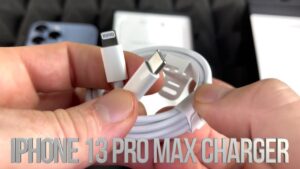Yes, you can install a fast charger at home, and it can significantly enhance your electric vehicle experience. With the right setup, you’ll charge your car quicker and enjoy the convenience of starting each day with a full battery.
Before diving into the installation process, it’s crucial to check your home’s electrical capacity and the local regulations. Seeking professional advice ensures you get a safe and effective charging solution tailored to your needs.
Installing a fast charger can be a smart investment, providing you the freedom and flexibility that comes with driving an electric vehicle.
Can You Install a Fast Charger at Home?
As electric vehicles (EVs) become more popular, many people wonder about the convenience and practicality of having a fast charger installed at home. Not only can a fast charger save you time, but it also makes your electric vehicle experience much more enjoyable and stress-free. This detailed guide will walk you through the entire process of installing a fast charger at home, exploring the benefits, requirements, costs, and common considerations that come with the installation.
What is a Fast Charger?
Before diving into the installation process, it’s essential to understand what a fast charger really is. Fast chargers, also known as Level 2 chargers, can typically recharge an electric vehicle much faster than a standard wall outlet. Here’s how it works:
- Charging Speed: Fast chargers can add about 10 to 60 miles of range per hour, depending on the vehicle and charger capacity.
- Voltage: They operate at 240 volts, as opposed to standard outlets that usually provide 120 volts.
- Connector Types: Most EVs come with connectors that are compatible with fast chargers, making them versatile for various vehicle models.
Benefits of Installing a Fast Charger at Home
Installing a fast charger at home comes with several advantages:
- Convenience: You can charge your electric vehicle overnight or whenever you need to without going to a public charging station.
- Time-Saving: A fast charger dramatically reduces the time required for charging compared to standard outlets.
- Cost-Efficiency: Charging at home can be cheaper than using public charging stations, especially if you take advantage of time-of-use electricity rates.
- Increased EV Range: You can ensure that your vehicle has enough charge for your daily commutes and longer trips.
Assessing Your Home Electrical System
Before you can install a fast charger, you need to assess your home’s electrical system to determine if it can handle the additional load. Here’s how to evaluate your electrical system:
Check Your Electrical Panel
Your electrical panel should have enough amperage to support a fast charger. Most home panels range from 100 to 200 amps. A Level 2 charger typically requires a 40 to 50 amp circuit.
– **Look for labeled circuits.**
– **Identify available slots in your panel.**
If you’re unsure, it’s wise to consult a licensed electrician.
Consider the Wiring
The wiring in your home needs to be compatible with the fast charger. It should be:
– Made from the correct gauge wire (usually 6 or 8 gauge).
– In good condition without any visible signs of wear or damage.
If you have old wiring that may not handle the load, an upgrade may be necessary.
Choosing the Right Charger
Selecting the right charger is crucial for a successful home installation. Here are some factors to consider:
Charging Speed
When choosing a charger, check the charging speed you require based on your vehicle’s battery capacity and your driving habits.
– **Standard Level 2 Chargers:** Typically provide 3.3 kW to 7.2 kW charging power.
– **High-Power Level 2 Chargers:** Can offer up to 19.2 kW for faster charging.
Smart Features
Many modern chargers come with smart features that allow you to monitor charging from your smartphone or set charging schedules.
– **Wi-Fi or Bluetooth connectivity:** Enables remote access.
– **Energy monitoring:** Helps you track usage and expenses.
Compatibility with Your EV
Ensure the charger’s plug is compatible with your vehicle. Most EVs use either the J1772 standard or a unique connector that your vehicle supports.
Installation Process
Once you’ve assessed your electrical system and chosen a charger, it’s time to move on to the installation process.
Hiring a Licensed Electrician
While some handy homeowners might attempt DIY installation, hiring a licensed electrician is strongly recommended. An electrician can ensure that everything meets local electrical codes and ensures safety. Here are some steps they will typically follow:
1. **Permit Application:** Obtain necessary permits from your local building department.
2. **Circuit Installation:** Add a dedicated circuit for the fast charger to your electrical panel.
3. **Wiring Setup:** Run appropriate wiring from the electrical panel to the charger location.
4. **Mounting the Charger:** Securely mount the charger on the wall, typically in a garage or carport.
5. **Testing:** Test the installation to ensure it’s functioning properly and safely.
Costs Associated with Installation
Installing a fast charger at home involves several costs:
- Charger Price: Fast chargers can cost anywhere from $500 to $1,500, depending on the type and features.
- Installation Fees: Electrician fees typically range from $300 to $1,000, depending on the complexity of the installation.
- Upgrades (if needed): Upgrading your electrical panel or wiring can add to the total cost.
Local Regulations and Incentives
Before embarking on the installation, check for local regulations that might affect your installation process. Some regions have specific zoning laws or building codes regarding charging stations.
Additionally, many areas offer incentives to promote electric vehicle adoption. These incentives can include:
– **Tax credits or deductions:** For purchasing an EV charger.
– **Rebates:** From local utility companies for energy-efficient installations.
Research your local laws and potential benefits to offset some of the costs associated with installation.
Common Challenges and Considerations
While installing a fast charger at home is generally straightforward, several challenges may arise.
Space Limitations
If you have a small garage or outdoor space, you may face limitations on where to install the charger. Ensure there is enough clearance for safe charging and that it’s easily accessible.
Homeowner Association (HOA) Rules
Check if you live in a community with an HOA. Some HOAs have guidelines regarding the installation of charging stations. You may need to submit architectural requests or seek approvals.
Weather Considerations
If you plan to install an outdoor charger, consider weatherproof options or enclosures to protect the equipment from harsh weather conditions.
Maintaining Your Fast Charger
Once you’ve installed the fast charger, it’s important to keep it well-maintained. Here are some tips:
- Regular Checks: Look for cracks, frays, or any signs of wear on cords and connections.
- Keep It Clean: Clean the charger’s surface and connectors regularly to avoid dirt buildup.
- Schedule Professional Inspections: Consider having a licensed electrician inspect the charger yearly to ensure it functions properly.
By following these steps, you can enjoy the convenience and benefits of having a fast charger installed at home. The installation process may seem daunting, but with the right planning and knowledge, you’ll soon have a reliable charging solution for your electric vehicle.
Having a fast charger at home not only simplifies your life but also contributes to a greener future by supporting the electric vehicle movement. Embrace this change and enjoy the newfound ease of charging your vehicle right from the comfort of your home!
Who Needs Level 2 EV Charging at Home?
Frequently Asked Questions
“`html
What type of electrical service is required for a fast charger installation at home?
To install a fast charger at home, you typically need a dedicated electrical circuit with a capacity of at least 240 volts. Most home fast chargers require a 40-50 amp service to handle the power demands efficiently. It’s essential to consult with a licensed electrician to evaluate your existing electrical system and determine if it can support the fast charger.
Can I install a fast charger in my garage?
Yes, a garage is often an ideal location for a fast charger installation. It provides a convenient and sheltered space for charging your electric vehicle. Ensure that you have appropriate electrical outlets and that the installation adheres to safety codes. Consulting with an electrician beforehand can help assess the suitability of your garage for this purpose.
What permits do I need to install a fast charger at home?
Depending on your local regulations, you may need to obtain permits before installing a fast charger. Many municipalities require a permit for any electrical work, especially for high-voltage installations. Check with your local building department to understand specific requirements in your area and ensure compliance with all safety standards.
How long does it take to install a fast charger at home?
The installation of a fast charger can usually be completed in a few hours to a day, depending on the complexity of the job. Factors affecting installation time include the need for electrical upgrades, the location of your electrical panel, and the existing wiring conditions. A qualified electrician will provide a more accurate estimate after assessing your home.
Will installing a fast charger increase my electricity bill significantly?
Installing a fast charger may increase your electricity bill, but the amount depends on how often you charge your electric vehicle. Charging costs vary based on your local electricity rates and the battery capacity of your vehicle. Many users find that the savings from switching to electric significantly outweigh the additional charging costs.
Can I use an existing electrical outlet for a fast charger?
Generally, existing standard electrical outlets are not suitable for fast chargers due to their power requirements. Fast chargers require dedicated circuits with higher voltage and amperage to charge electric vehicles efficiently. Always consult a licensed electrician for advice on safely upgrading your electrical capacity to support a fast charger.
“`
Final Thoughts
Installing a fast charger at home can enhance your electric vehicle experience significantly. However, it requires careful consideration of your electrical system and local regulations.
Before proceeding, evaluate your home’s electrical capacity and consult a professional electrician to determine feasibility.
Ultimately, the answer to the question, “can you install a fast charger at home,” depends on your specific circumstances and local codes. With the right preparation, you can enjoy the convenience of fast charging right in your garage.



